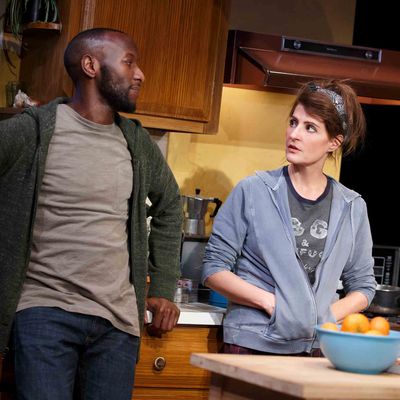
In 2010, two years before she became famous as the author of Wild, Cheryl Strayed took over writing the “Dear Sugar” advice column from a friend. She had none of the skills that traditionally go with such a position: She was not bossy, she was not snappy, she was not an orderly, lacquer-haired matron. In fact, she was a recovering heroin addict with a messy backstory who’d never met a sentence she couldn’t embroider ad infinitum. Still, she turned out to be good at the job, as a 2012 collection of her columns, called Tiny Beautiful Things, made clear on every page. The advice was, literally, the least of it. Sometimes she didn’t even answer the question at hand, or did so only after constructing a prose poem that was part moral fantasia and part autobiography. She pretended to no special expertise except the radical sympathy that came from surviving crises analogous to the ones her readers were facing. If she could not bring their problems to closure, she could sure write a paragraph.
What that achievement has to do with theater I cannot tell you. Nevertheless, a work called Tiny Beautiful Things, adapted for the stage by the actress Nia Vardalos, opened at the Public Theater tonight, in a production directed by Hamilton’s Thomas Kail. (The project was conceived by Vardalos, Kail, and the Wall Street Journal columnist Marshall Heyman.) Their translation amounts to little more than cutting and pasting dozens of questions and answers from the book, with a close focus on 14 of them, into a collage. Other presentational shows — from Love, Loss, and What I Wore to Celebrity Autobiography — have been as faithful to their unlikely sources, but none that I can recall has staked its effects, as Tiny Beautiful Things does, on a premise that basically defies suspense at every turn. Should I tell my friends I stole from them? (No.) Should I maintain my relationship with my abusive father? (No.) If this were drama, the SAT would be Chekhov.
But then drama, at least the traditional kind, does not seem to be what anyone was after. If it had been, the adapters would have had to crack open Strayed’s format and jettison her lovely prose, which would be throwing out the baby with the bathwater. (No, don’t do that.) Instead, somewhat bravely and somewhat foolishly, they have honored the original genre at the expense of the adopted one. Though three actors perform the “roles” of the myriad questioners, and continuously haunt a set (by Rachel Hauck) that represents Strayed’s toy-strewn living room and kitchen, they are little more than disembodied radio voices. Once they’ve said their piece and face-acted a response to the answer, they recede into the shadows; the next time they are heard from, they are someone else. Meanwhile Vardalos, playing Strayed, does nothing but respond — that is, speak her beautiful replies — while occasionally pausing to formulate her approach or fix the next day’s lunch for her kids. This format ensures that no conflict is enacted; it is merely recalled or implied. Strayed’s responses further distance the drama: In the very act of shaping them as art they become modern-day fables (“The Empty Bowl,” “The Baby Bird”) with much the same structure whether humorous or tragic. (I feel for you; I’ve been there; there’s no simple answer; you will survive.) Thus lacking intrinsic momentum, the show’s 90 minutes can’t help but unreel a bit stuporously, despite Kail’s typically careful balancing of tempo and tone.
That Tiny Beautiful Things nevertheless keeps your interest is mostly a tribute to the acting. Though the questioners (Phillip James Brannon, Alfredo Narciso, and Natalie Woolams-Torres) sometimes work too hard to sell their brief moments, more often they perform perfect little exercises in sense memory and commitment. (Narciso is especially heartbreaking in the climactic segment about a father whose son was killed by a drunk driver.) Vardalos, better known for the sharp sitcom brightness of her Big Fat Greek Wedding movies, is unexpectedly lovely here in a darker, more thoughtful mode, and does what can be done to bring emotional depth to Strayed’s prosy divagations. If this is a classic “why?” endeavor — the kind of perseverative project Strayed might well advise against — it still has plenty of powerful moments in which you are persuaded “why not?”
Tiny Beautiful Things is at the Public Theater through December 31.

